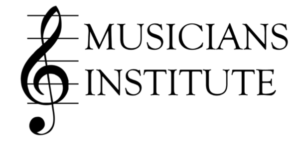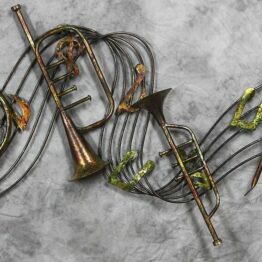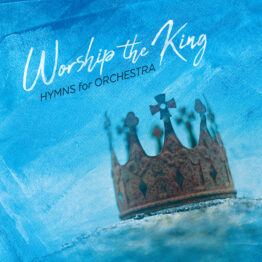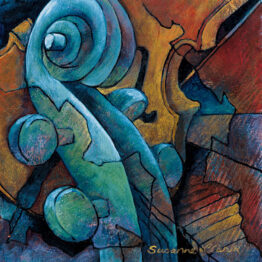
ORCHESTRAS IN CHURCH MINISTRY TODAY
From time to time I get involved in conversations about orchestras playing in worship services. Musical instruments are included as part of the worship services in many churches in many parts of the world, as they have been for decades. There are some people in these conversations who question if the useful days of the orchestra in church are past. Should the church abandon the orchestra in the worship service? May it never be!
To begin a discussion such as this, let’s us clarify what we mean by orchestra. I am referring to organized instrumental ensembles made up of woodwinds, brass, rhythm section and strings (hopefully!). It is a very inclusive term, allowing for many variations in instrumentation and the style of music played. This kind of group would be more than just a couple of horns playing with a rhythm section. It would be a group capable of reading and playing an orchestration – from instrumental hymnals, or choir accompaniments, or stand alone orchestra arrangements in many cases.
The Relevance of Orchestra in Worship
We learn in Genesis 4 of Jubal, the father of instrumentalists. As other people began inventing and playing instruments, some of them surely would have begun playing them together – and ensembles were born. Scripture holds several descriptions of large groups of instruments playing together – most notably in the Tabernacle (2 Chronicles 29 for example). In Psalm 150, perhaps the best known passage in scripture about instruments, we are instructed to use them to give God the praise He alone is due. The variety of instruments named likely implies using them both individually and together. There is clear biblical instruction and precedent to use instruments and groups of instruments to worship God. Nowhere does the New Testament instruct us to stop using instruments in worship.
Instrumental ensembles have been playing together for thousands of years. As instruments have been refined and music written for them, bands and orchestras have developed. Even though styles of music have changed over centuries of music history, the practice of instruments playing in ensembles small and large remains. As styles and technologies have changed, so has the make up of instrumental ensembles. One imagines that they will continues as long as there are instrumentalists to populate them.
The instrumentation of the church orchestra makes it a very versatile ensemble, capable of a variety of music styles – including rhythm driven styles. Music from contemporary titles to the Hallejuah Chorus from Messiah can be done by the same group in the same service (and has been done many times). The orchestra – even as defined earlier is a palate of many colors – styles, textures, and dynamics.
Orchestras in Today’s Culture
Schools in the United States have been teaching instrumental music for well over one hundred years. Orchestras and bands have been major parts of ceremonies and athletic events. Many thousands of students have completed secondary school proficient in playing an instrument. After graduation, some of these students go on to major in music in college. They may choose to teach or go on to perform as their career in a symphony orchestra, military ensemble, or as a freelance musician. Many other adult players look opportunities to play. Community bands and orchestras are populated with former high school players. Churches all over the world have opportunities for instrumentalists to minister in their services.
The sounds of an orchestra can be heard in many places in our world. Perhaps most notably would be as music for movies. Hollywood has recognized the beauty and power of and orchestra for decades. Even in the age of digital music, live musicians are still part. For a profit making venture to spend the money and time required to compose and record a film score with an orchestra there must be a value placed on its results in the finished product.
Where we often hear orchestras and other live instrumental ensembles:
Olympic Games – opening and closing ceremonies, playing of national anthems for medal ceremonies, and more
Official ceremonies of State
Live entertainers often use live orchestra.
Television specials – holiday and special events – including on public broadcasting
Broadway and off Broadway shows
Parades and patriotic concerts
Athletic events – imagine college football games without the band!
Orchestras have an ongoing voice in today’s world. They also have a God-mandated voice among His people. How it must delight the heart of God to hear His redeemed, with clean hands and pure hearts, playing their praises to Him, just has He has told us.




I wish I could find a church orchestra in Idaho…
Are you in a good church near where you live? If so – how many people come on a Sunday usually? Maybe you can start some kind of group – or at least play in your service by yourself, and pray for more players to come.